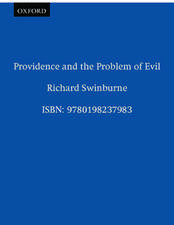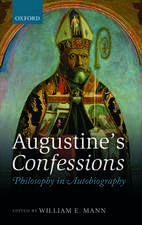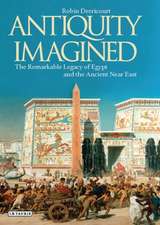God, Modality, and Morality
Autor William E. Mannen Limba Engleză Hardback – 24 iun 2015
Preț: 414.90 lei
Preț vechi: 757.56 lei
-45% Nou
Puncte Express: 622
Preț estimativ în valută:
79.39€ • 82.90$ • 65.56£
79.39€ • 82.90$ • 65.56£
Carte disponibilă
Livrare economică 15-21 martie
Preluare comenzi: 021 569.72.76
Specificații
ISBN-13: 9780199370764
ISBN-10: 0199370761
Pagini: 380
Dimensiuni: 236 x 155 x 41 mm
Greutate: 0.59 kg
Editura: Oxford University Press
Colecția OUP USA
Locul publicării:New York, United States
ISBN-10: 0199370761
Pagini: 380
Dimensiuni: 236 x 155 x 41 mm
Greutate: 0.59 kg
Editura: Oxford University Press
Colecția OUP USA
Locul publicării:New York, United States
Recenzii
This is a book philosophers of religion will want on their shelvesThese influential papers combine analytic precision with historical erudition: in many places Mann works directly from the classical texts and supplies his own translations. Mann ranges masterfully over a wealth of topics from the highly abstract (divine simplicity, aseity, sovereignty, immutability, omnipresence) to the deeply existential (mysticism, divine love, human love and lust, guilt, lying, piety, hope).
These essays all raise very interesting issues in philosophical theology. It is fascinating to observe the role Mann assigns to divine simplicity in resolving so many of them. Anyone working in metaphysics and philosophical theology will certainly benefit from the painstaking attention Mann affords to simplicity and its surrounding issues.
These essays all raise very interesting issues in philosophical theology. It is fascinating to observe the role Mann assigns to divine simplicity in resolving so many of them. Anyone working in metaphysics and philosophical theology will certainly benefit from the painstaking attention Mann affords to simplicity and its surrounding issues.
Notă biografică
William E. Mann received his Ph.D. in Philosophy from the University of Minnesota. Having previously taught at St. Olaf College and Illinois State University, he has been a professor in the University of Vermont's Department of Philosophy since 1974, retiring as Marsh Professor of Intellectual and Moral Philosophy in 2010. He has published extensively in the philosophy of religion-especially philosophical theology-and in medieval philosophy.

















